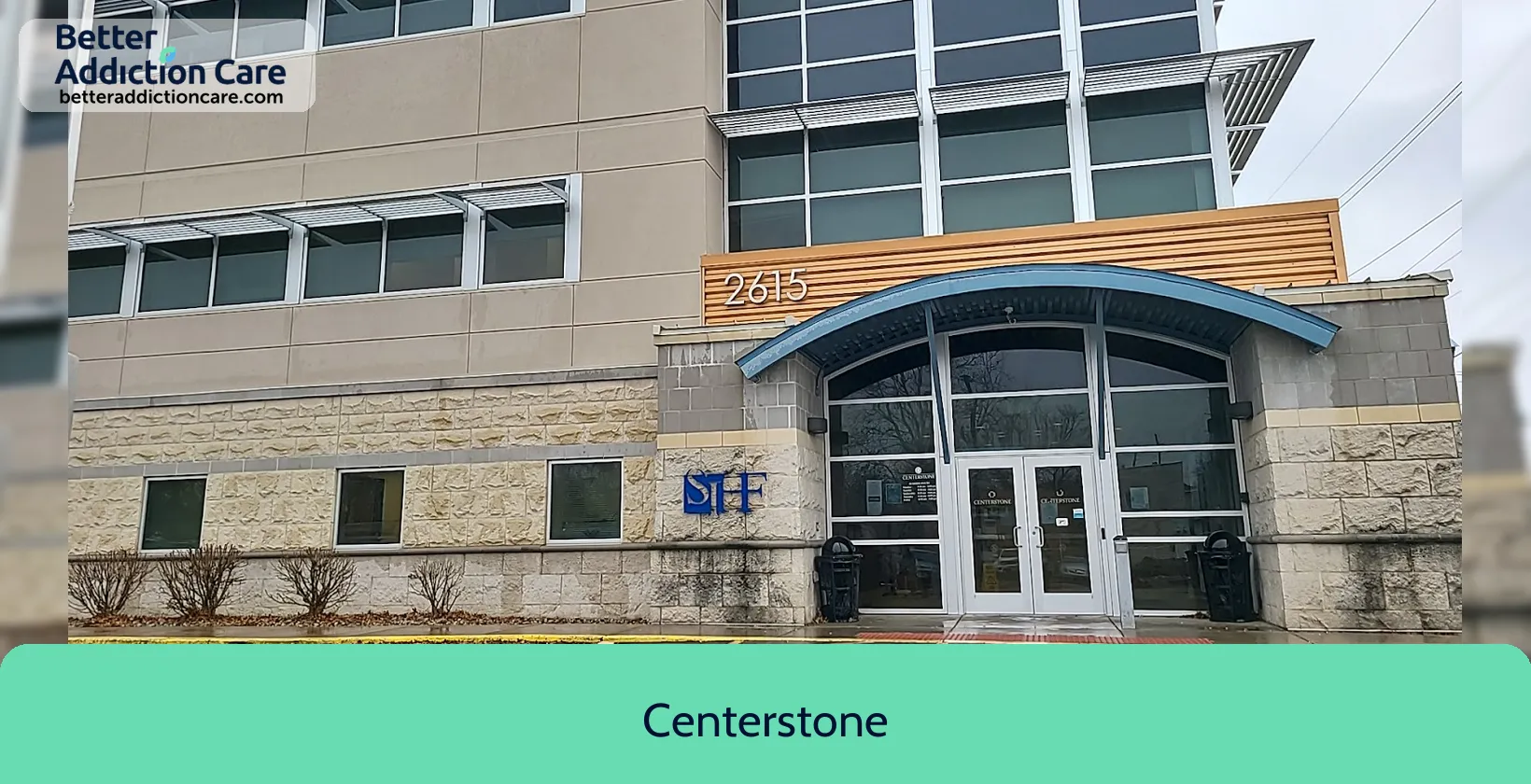Centerstone

Overview
The private rehabilitation facility Centerstone, which treats drug abuse addictions and co-occurring mental health issues, is situated near Springfield, Tennessee. They provide a variety of adaptable outpatient addiction treatment choices that let patients get help while continuing to live their normal lives at home. Centerstone helps clients sustain long-term recovery by providing relapse prevention programs in addition to outpatient therapy.
With customized treatment regimens made to meet the particular requirements of men, women, and teenagers, Centerstone's specialist rehabilitation programs serve a range of demographics. By concentrating on the unique difficulties that each group faces, these age-and gender-appropriate therapies seek to provide a healing atmosphere. Patients gain from an immersive therapeutic environment that promotes complete participation in their healing process by removing outside distractions and enabling them to concentrate on their recuperation.
Centerstone is a nonprofit health system that treats individuals of all ages in a number of states, including North Carolina, Tennessee, Florida, Illinois, and Indiana, for mental health and drug use disorders. Centerstone provides comprehensive treatment that is tailored to the various requirements of its clients via a network of inpatient hospitals, residential programs, school-based services, telemedicine alternatives, and outpatient clinics. In addition to these services, Centerstone offers therapeutic foster care and other specialized programs for children and military members around the country.
Centerstone's goal is centered on its dedication to "deliver care that changes people’s lives." The organization provides a range of mental health services under this guiding philosophy, such as crisis intervention, family assistance, addiction treatment, support for people with intellectual and developmental disabilities, and residential care. From young toddlers to elderly people, this wide range of care guarantees that everyone has access to the assistance they need to recuperate and become well.
Through research and innovation, the Centerstone Institute's committed team of medical professionals—including doctors, psychologists, and educators—aims to improve the fields of mental health and drug abuse treatment. The Institute bridges the gap between research and practice by incorporating scientific findings into useful, real-world applications that aid in the development of innovative treatment models, including community-based addiction recovery, telemedicine services, and suicide prevention.
As the organization's philanthropic arm, Centerstone's Foundation raises money from grant funders, corporations, and philanthropists. The Foundation's programs and projects that provide children, adults, and families life-changing care are directly supported by donations. The Foundation improved clinical services and health outcomes for those in need by raising more than $3.2 million in contributions in 2020.
The Military treatments program, which provides culturally sensitive mental health treatments to active-duty military personnel, veterans, National Guard and Reserve members, and their families, is a vital part of Centerstone's offerings. Through collaboration with groups like the Cohen Veterans Network and the Wounded Warrior Project, Centerstone offers a wide range of services, such as case management, peer mentorship, counseling, and homelessness intervention. About 15,000 individuals, couples, and families have benefited from the Military Services program since its start, guaranteeing that the special requirements of the military community are satisfied with the best possible care.
Centerstone is a top supplier of mental health and addiction treatment services in the country because to its dedication to high-quality care, research-driven procedures, and a comprehensive approach to wellbeing.
Centerstone at a Glance
Payment Options
- Cash or self-payment
- Medicaid
- Medicare
- State-financed health insurance plan other than Medicaid
- Private health insurance
Assessments
- Screening for tobacco use
- Comprehensive mental health assessment
- Comprehensive substance use assessment
Age Groups
- Children/adolescents
- Young adults
- Adults
- Seniors
- Adolescents
Ancillary Services
- Intensive case management
- Case management service
- Court-ordered outpatient treatment
- Diet and exercise counseling
- Family psychoeducation
Highlights About Centerstone
7.09/10
With an overall rating of 7.09/10, this facility has following balanced range of services. Alcohol Rehabilitation: 8.00/10, Drug Rehab and Detox: 6.00/10, Insurance and Payments: 6.53/10, Treatment Options: 7.82/10.-
Alcohol Rehabilitation 8.00
-
Treatment Options 7.82
-
Insurance and Payments 6.53
-
Drug Rehab and Detox 6.00
Treatment At Centerstone
Treatment Conditions
- Alcoholism
- Mental health treatment
- Substance use treatment
- Co-occurring Disorders
- Opioid Treatement
Care Levels
- Outpatient
- Aftercare
- Detoxification
- Outpatient detoxification
- Outpatient day treatment or partial hospitalization
Treatment Modalities
- Couples/family therapy
- Group counseling
- Cognitive behavioral therapy
- Dialectical behavior therapy
- Integrated Mental and Substance Use Disorder treatment
Ancillary Services
Languages
- Sign language services for the deaf and hard of hearing
Additional Services
- Pharmacotherapies administered during treatment
- Metabolic syndrome monitoring
Special Programs
- Clients who have experienced trauma
- Persons with post-traumatic stress disorder (PTSD)

Additional Locations
Contact Information
Read our Most Recent Article About Drug Addiction
DISCLAIMER: The facility name, logo and brand are the property and registered trademarks of Centerstone, and are being used for identification and informational purposes only. Use of these names, logos and brands shall not imply endorsement. BetterAddictionCare.com is not affiliated with or sponsored by Centerstone.










